
SCARS Institute’s Encyclopedia of Scams™ Published Continuously for 25 Years

Mexico’s Cartels Expanded Into Scams & Fraud
Mexican cartels have been known to extend their criminal activities beyond the realm of drug trafficking and violence and into various forms of online & phone scams & financial fraud.
In recent years, there have been reports of Mexican cartels becoming involved in various forms of online and phone scams, as well as financial fraud, operating from centers within Mexico.
One prevalent scheme is the “virtual kidnapping” or “express kidnapping” scam
Cartel members, often operating from call centers, target individuals, primarily in the United States, through phone calls or online communication, targeting Latinos living in the U.S. speaking Spanish. They employ coercive tactics to make victims believe that their loved ones (often in Mexico or other parts of Latin America) have been kidnapped or are in imminent danger. The scammers demand ransom payments in exchange for their release. In reality, the victims’ family members are usually safe, but the scammers use fear and manipulation to extract money from the victims.
Cartels have also been involved in other types of financial fraud, such as phishing scams and identity theft
These activities involve sending fraudulent emails or setting up fake websites that mimic legitimate financial institutions or businesses in Mexico and elsewhere in Latin America. Through these tactics, they deceive individuals into providing personal information, such as bank account details or social security numbers, which the cartels then exploit for financial gain. These scams can lead to significant financial losses for unsuspecting victims.
Romance & Other Forms of Relationship Scams from Mexico
Romance scams, unfortunately, are a prevalent form of online fraud that can originate from almost any country, including Mexico.
These scams involve individuals sometimes creating fake identities or profiles but not always on dating websites or social media platforms to establish romantic relationships with unsuspecting victims. One of the unique aspects of Latin American romance scams is that they often use real people using their real identities – like Philippines scams – everything in the storyline is real, except that they omit that they may have spouses and of course the fake affection they feel for the victims.
In the case of romance scams originating from Mexico, perpetrators may utilize different tactics to manipulate their targets than do the Nigerians. They may present themselves as attractive and charming individuals, often claiming to be Mexican nationals or residing in Mexico. As they are often real people residing in Mexico, the scam follows a different path, though still involved setting money.
Just as with the Philippines style, as the relationship progresses, the scammers often concoct elaborate stories to gain sympathy and trust but do it around their real identities and life activities. They will be better able to provide spontaneous photos or videos, and real phone or video chats online.
Like with the Philippines, it is often difficult or impossible to prosecute these crimes since real identities are used and to law enforcement, it looks like a real relationship.
Mexican Cartels
The involvement of Mexican cartels in these types of scams is concerning due to their organizational capabilities and access to resources. They often operate in areas with limited law enforcement presence (such as in the center of Mexico), which allows them to carry out these illicit activities with relative impunity. Additionally, their connections and networks facilitate money laundering and the movement of illicit funds.
Efforts to combat these scams and financial fraud schemes involving Mexican cartels require cooperation between international law enforcement agencies, improved regulation and oversight in the telecommunications sector, and public awareness campaigns to educate individuals about the risks and signs of these scams. Enhanced cybersecurity measures and collaboration between financial institutions can also help detect and prevent fraudulent transactions.
Unfortunately, the Mexican government does not seem as concerned about the financial fraud side of the cartel’s activities, as they focus more on the other forms of violence, drug trafficking, and human trafficking that they engage in. However, scams and financial fraud will soon surpass the other types of crimes combined as they have done in other countries around the world. Additionally, the culture of corruption in Mexico creates massive problems for the effective use of law enforcement and criminal justice institutions.
Mexican Cartels have a key difference from most other transnational organized crime organizations, they employ extreme violence without hesitation. This is why scams involving threats of violence are so believable. While we have not seen any evidence of this yet, they also may be able to project force into the United States and Canada in ways no other scamming organizations have been able to thus far.
The New New Thing – Mexican Cartel Scam Slave Centers
In recent months we have seen significant evidence of Mexican Cartels developing scam centers along the design of the Cambodian centers that use captives to perform the actual scamming, and like Cambodia, Laos, Myanmar, etc. they acquire their scam slaves by advertising for good-paying jobs. Once the applicants show up, completely unsuspecting, they are taken and held captive to perform the scamming as long as the cartels want.
Except, the Mexican cartels are very comfortable with violence, and we are beginning to see how they will respond when their captives do not perform as they want.
Bodies Found in Trash Bags
As Mexican cartels become involved in scams violence follows!
SCARS NOTE: This represents a dramatic & violent new direction in transnational scams. This level of violence has not been seen before associated with scam, even in Cambodia!
This month, an American man and many Mexicans are feared to be among call center victims whose remains were found in 45 bags in a Mexican ravine in Jalisco.
The Jalisco State Attorney General’s Office said the remains found in 45 bags match some of the bodies of the seven missing workers in a ravine at Zapopan, a Guadalajara suburb. The workers disappeared from two call centers between May 20 and 22. The staff reportedly worked at two illegal centers that sold and rented timeshares; the centers may have been under investigation led by U.S. authorities. It is suspected that they were taken to another center where they were held as scam slaves.
The human remains that were found in 45 bags have characteristics that match some of the bodies of the seven people, including an American and 6 Mexicans who were kidnapped from two illegal call centers in the western Mexican state of Jalisco. The gruesome discovery was made this month, at the bottom of a 120-foot ravine in a remote area located between the Zapopan neighborhoods of Mirador Escondido and Potrero de La Coronilla, the State Attorney General’s Office revealed.
The prosecutor’s office said in a press release statement that investigators had “cross-checked information that coincided with the physical characteristics of some of the young people who are being searched” after they disappeared between May 20 and 22. It met with the family of the missing staff and is now waiting for the Jalisco Institute of Forensic Sciences to confirm the identities of the bodies that were found.
Mexico’s Secretary of Security Rosa Icela Rodriguez Velazquez said last Tuesday that initial investigations suggested the workers might have been involved in “some type of real estate fraud” and “telephone extortion.”
Mexico has been troubled by an epidemic of disappearances with more than 100,000 Mexicans and migrants still missing.
More than 1,500 bodies have been found in Jalisco state alone since 2018, official figures show. According to the office of Jalisco’s special prosecutor for missing persons, 291 bodies were discovered in 2019, 544 bodies were found in 2020, 280 bodies in 2021, and 301 the following year. So far in 2023, 147 bodies have been found.
Photos of the Recovery
A helicopter extracts bags filled with human remains from the bottom of a ravine in the western Mexico state of Jalisco
The Missing
U.S. Launches Sanctions Against Mexican Cartels
U.S. accuses notorious Mexican cartel of targeting Americans in timeshare fraud – Treasury Sanctions Fugitive, Others Linked to CJNG Timeshare Fraud Network
Treasury Coordinates with Government of Mexico to Further Disrupt CJNG Timeshare Fraud
WASHINGTON — In April 2023, the U.S. Department of the Treasury’s Office of Foreign Assets Control (OFAC) sanctioned Eduardo Pardo Espino, who is a fugitive from a U.S. drug trafficking charge, along with six other individuals and 19 Mexican companies. These individuals and companies are linked, directly or indirectly, to timeshare fraud led by the Cartel de Jalisco Nueva Generacion (CJNG), which is a violent Mexico-based organization that traffics a significant proportion of the illicit fentanyl and other deadly drugs that enter the United States. OFAC coordinated this action with the Government of Mexico and U.S. Government partners.
“CJNG’s deep involvement in timeshare fraud in the Puerto Vallarta area and elsewhere, which often targets elder U.S. citizens and can defraud victims of their life savings, is an important revenue stream supporting the group’s overall criminal enterprise,” said Under Secretary of the Treasury for Terrorism and Financial Intelligence Brian E. Nelson. “As part of the Administration’s whole-of-government effort to address this crisis and, in coordination with our partners in Mexico, Treasury remains committed to disrupting CJNG’s sources of revenue.”
EXPOSING CJNG TIMESHARE FRAUD
On March 2, 2023, OFAC sanctioned the following eight Mexican companies, which are linked, directly or indirectly, to CJNG’s timeshare fraud activities: Servicios Administrativos Fordtwoo, S.A. de C.V., Integracion Badeva, S.A. de C.V., JM Providers Office, S.A. de C.V., Promotora Vallarta One, S.A. de C.V., Recservi, S.A. de C.V., Corporativo Title I, S.A. de C.V., Corporativo TS Business Inc, S.A. de C.V., and TS Business Corporativo, S.A. de C.V. These eight companies were designated pursuant to Executive Order (E.O.) 14059 for being owned, controlled, or directed by, or having acted or purported to act for or on behalf of, directly or indirectly, CJNG, a person sanctioned pursuant to E.O. 14059.
CONTINUING TO DISRUPT CJNG’S TIMESHARE FRAUD NETWORK
Building on past actions that sanctioned only companies, today OFAC sanctioned seven individuals and an additional 19 Mexican companies—located in the Puerto Vallarta, Jalisco area and elsewhere—that are linked, directly or indirectly, to CJNG’s timeshare activities. Puerto Vallarta is a CJNG strategic stronghold for drug trafficking and various other illicit activities.
The OFAC designated Mexican national Eduardo Pardo Espino (Pardo), a fugitive from U.S. justice and financial operator for CJNG based in Puerto Vallarta. In September 2019, following an investigation led by the Drug Enforcement Administration, a federal grand jury returned an indictment in the U.S. District Court for the Southern District of California charging Pardo with conspiracy to distribute methamphetamine. Pardo has also played a role in Servicios Administrativos Fordtwoo, S.A. de C.V., which is linked to CJNG’s timeshare fraud activities and has made direct payments to CJNG members. OFAC designated Pardo today pursuant to E.O. 14059 for having engaged in, or attempted to engage in, activities or transactions that have materially contributed to, or pose a significant risk of materially contributing to, the international proliferation of illicit drugs or their means of production. Additionally, OFAC designated Pardo for having acted or purported to act for or on behalf of, directly or indirectly, CJNG and Servicios Administrativos Fordtwoo, S.A. de C.V.
The OFAC designated the following five Mexican companies—listed with their purported activities—pursuant to E.O. 14059 for being owned, controlled, or directed by, or having acted or purported to act for or on behalf of, directly or indirectly, Pardo: Besthings, S.A. de C.V. (travel agency), Produzioni Peca, S. de R.L. de C.V. (wholesale trade), RH Litman, S. de R.L. de C.V. (business support), Servicios Administrativos Dantwoo, S.A. de C.V. (business support), and Sociedad Spa Peninsula, S. de R.L. de C.V. (beauty salon).
Like Pardo, Mexican nationals Brayan Moises Luquin Rodriguez (Luquin) and Horacio Edmundo Lelo de Larrea Ventimilla (Lelo de Larrea) also act on behalf of CJNG and are linked, directly or indirectly, to its timeshare fraud activities. Today, OFAC designated Luquin and Lelo de Larrea pursuant to E.O. 14059 for having acted or purported to act for or on behalf of, directly or indirectly, CJNG and Servicios Administrativos Fordtwoo, S.A. de C.V. OFAC designated the following Mexican companies—listed with their purported activities—pursuant to E.O. 14059 for being owned, controlled, or directed by, or having acted or purported to act for or on behalf of, directly or indirectly, Lelo de Larrea: AKA Integral Services, S. de R.L. de C.V. (construction), Envigh, S. de R.L. de C.V. (real estate), Suncan Mexico, S. de R.L. de C.V. (real estate), and Trados Comercio, S. de R.L. de C.V. (construction).
The remaining Mexican nationals designated include: Luis Lorenzo Gomez Arias (Gomez), Clemente Padilla Zarate (Padilla), Pedro Rivas Sanchez (Rivas), and Ian Jassiel Gonzalez Villegas (Gonzalez)—are also linked, directly or indirectly, to CJNG’s timeshare fraud activities through their roles in one or more of the Mexican companies designated on March 2, 2023. OFAC designated Gomez, Padilla, and Rivas pursuant to E.O. 14059 for being or having been leaders or officials of one or more the companies designated on March 2, 2023. In 2016, the Illinois state government identified Padilla as being involved in timeshare fraud targeting Mexican citizens. OFAC designated Gonzalez for having acted or purported to act for or on behalf of, directly or indirectly, one or more the companies designated on March 2, 2023. OFAC designated the following nine Mexican companies—listed with their purported activities—that are linked to one or more of the above four individuals. OFAC designated the following company pursuant to E.O. 14059 for being owned, controlled, or directed by, or having acted or purported to act for or on behalf of, directly or indirectly, Gomez: Atlantic Diamond Group, S.A. de C.V. (real estate). OFAC designated the following Mexican companies pursuant to E.O. 14059 for being owned, controlled, or directed by, or having acted or purported to act for or on behalf of, directly or indirectly, Padilla: Constructores B2, S.A. de C.V. (business support) and Corporativo Bussines [sic] Mx Insider, S.A. De C.V. (real estate). OFAC designated the following Mexican companies pursuant to E.O. 14059 for being owned, controlled, or directed by, or having acted or purported to act for or on behalf of, directly or indirectly, Rivas: Asesores Y Promotores ACG, S.A. de C.V. (business support) and Resguardo de Valores y Servicios Integrales RSVI, S.A. de C.V. (travel agency). OFAC designated the following Mexican companies pursuant to E.O. 14059 for being owned, controlled, or directed by, or having acted or purported to act for or on behalf of, directly or indirectly, Gonzalez: Bussines [sic] Corporativo T Service Inc, S.A. de C.V. (real estate), Corporativo Bussines [sic] Mx Insider, S.A. De C.V. (real estate), Corporativo Soporte Legal Recovery, S.A. de C.V. (business support), NT Insurance Corporativo, S.A. De C.V. (real estate), and T Service Bussines [sic] Inc, S.A. de C.V. (business support).
Finally, OFAC today designated Magniservia, S.A. de C.V., purportedly engaged in business support, pursuant to E.O. 14059 for being owned, controlled, or directed by, or having acted or purported to act for or on behalf of, directly or indirectly, CJNG.
OTHER ACTIONS AGAINST CJNG
On April 8, 2015, OFAC sanctioned CJNG pursuant to the Foreign Narcotics Kingpin Designation Act (Kingpin Act) for playing a significant role in international narcotics trafficking. On December 15, 2021, OFAC also designated CJNG pursuant to E.O. 14059. In other actions, OFAC has designated numerous CJNG-linked companies that were engaged in various commercial activities and multiple individuals who played critical roles in CJNG’s drug trafficking, money laundering, and corruption. Many recent actions have focused on CJNG’s strategic stronghold of Puerto Vallarta. OFAC has designated the following senior CJNG members based in Puerto Vallarta: Carlos Andres Rivera Varela (a.k.a. “La Firma”), Francisco Javier Gudino Haro (a.k.a. “La Gallina”), and Julio Cesar Montero Pinzon (a.k.a. “El Tarjetas”). These three individuals are part of a CJNG enforcement group based in Puerto Vallarta that orchestrates assassinations of rivals and politicians using high-powered weaponry.
Chart of the CJNG Cartel
[pdf-embedder url=”https://romancescamsnow.com/wp-content/uploads/2023/06/20230427_cjng_timeshare_fraud_network_Part21.pdf” title=”Chart on the Mexican entities designated “]
Related Stories:
- Human remains found in 45 bags are missing call center staff, Mexico confirms | CNN
- Mexico authorities find 45 bags filled with body parts in search for seven missing call centre workers | The Independent
- Treasury Sanctions Fugitive, Others Linked to CJNG Timeshare Fraud Network | U.S. Department of the Treasury
- U.S. accuses Jalisco New Generation cartel of targeting elderly Americans in timeshare fraud – CBS News
- Mexico Rescues 275 Workers From ‘Slavery’ At Tomato Plant In Toliman | HuffPost The World Post
-/ 30 /-
What do you think about this?
Please share your thoughts in a comment below!
Table of Contents
- Mexican Cartels Are Now In The Scamming Business With Violence!
- Mexico’s Cartels Expanded Into Scams & Fraud
- One prevalent scheme is the “virtual kidnapping” or “express kidnapping” scam
- Cartels have also been involved in other types of financial fraud, such as phishing scams and identity theft
- Romance & Other Forms of Relationship Scams from Mexico
- Mexican Cartels
- The New New Thing – Mexican Cartel Scam Slave Centers
- U.S. Launches Sanctions Against Mexican Cartels
- Related Stories:
LEAVE A COMMENT?
Recent Comments
On Other Articles
- Arwyn Lautenschlager on Love Bombing And How Romance Scam Victims Are Forced To Feel: “I was love bombed to the point that I would do just about anything for the scammer(s). I was told…” Feb 11, 14:24
- on Dani Daniels (Kira Lee Orsag): Another Scammer’s Favorite: “You provide a valuable service! I wish more people knew about it!” Feb 10, 15:05
- on Danielle Delaunay/Danielle Genevieve – Stolen Identity/Stolen Photos – Impersonation Victim UPDATED 2024: “We highly recommend that you simply turn away form the scam and scammers, and focus on the development of a…” Feb 4, 19:47
- on The Art Of Deception: The Fundamental Principals Of Successful Deceptions – 2024: “I experienced many of the deceptive tactics that romance scammers use. I was told various stories of hardship and why…” Feb 4, 15:27
- on Danielle Delaunay/Danielle Genevieve – Stolen Identity/Stolen Photos – Impersonation Victim UPDATED 2024: “Yes, I’m in that exact situation also. “Danielle” has seriously scammed me for 3 years now. “She” (he) doesn’t know…” Feb 4, 14:58
- on An Essay on Justice and Money Recovery – 2026: “you are so right I accidentally clicked on online justice I signed an agreement for 12k upfront but cd only…” Feb 3, 08:16
- on The SCARS Institute Top 50 Celebrity Impersonation Scams – 2025: “Quora has had visits from scammers pretending to be Keanu Reeves and Paul McCartney in 2025 and 2026.” Jan 27, 17:45
- on Scam Victims Should Limit Their Exposure To Scam News & Scammer Photos: “I used to look at scammers photos all the time; however, I don’t feel the need to do it anymore.…” Jan 26, 23:19
- on After A Scam, No One Can Tell You How You Will React: “This article was very informative, my scams happened 5 years ago; however, l do remember several of those emotions and/or…” Jan 23, 17:17
- on Situational Awareness and How Trauma Makes Scam Victims Less Safe – 2024: “I need to be more observant and I am practicing situational awareness. I’m saving this article to remind me of…” Jan 21, 22:55
ARTICLE META
Important Information for New Scam Victims
- Please visit www.ScamVictimsSupport.org – a SCARS Website for New Scam Victims & Sextortion Victims
- Enroll in FREE SCARS Scam Survivor’s School now at www.SCARSeducation.org
- Please visit www.ScamPsychology.org – to more fully understand the psychological concepts involved in scams and scam victim recovery
If you are looking for local trauma counselors please visit counseling.AgainstScams.org or join SCARS for our counseling/therapy benefit: membership.AgainstScams.org
If you need to speak with someone now, you can dial 988 or find phone numbers for crisis hotlines all around the world here: www.opencounseling.com/suicide-hotlines
A Note About Labeling!
We often use the term ‘scam victim’ in our articles, but this is a convenience to help those searching for information in search engines like Google. It is just a convenience and has no deeper meaning. If you have come through such an experience, YOU are a Survivor! It was not your fault. You are not alone! Axios!
A Question of Trust
At the SCARS Institute, we invite you to do your own research on the topics we speak about and publish, Our team investigates the subject being discussed, especially when it comes to understanding the scam victims-survivors experience. You can do Google searches but in many cases, you will have to wade through scientific papers and studies. However, remember that biases and perspectives matter and influence the outcome. Regardless, we encourage you to explore these topics as thoroughly as you can for your own awareness.
Statement About Victim Blaming
SCARS Institute articles examine different aspects of the scam victim experience, as well as those who may have been secondary victims. This work focuses on understanding victimization through the science of victimology, including common psychological and behavioral responses. The purpose is to help victims and survivors understand why these crimes occurred, reduce shame and self-blame, strengthen recovery programs and victim opportunities, and lower the risk of future victimization.
At times, these discussions may sound uncomfortable, overwhelming, or may be mistaken for blame. They are not. Scam victims are never blamed. Our goal is to explain the mechanisms of deception and the human responses that scammers exploit, and the processes that occur after the scam ends, so victims can better understand what happened to them and why it felt convincing at the time, and what the path looks like going forward.
Articles that address the psychology, neurology, physiology, and other characteristics of scams and the victim experience recognize that all people share cognitive and emotional traits that can be manipulated under the right conditions. These characteristics are not flaws. They are normal human functions that criminals deliberately exploit. Victims typically have little awareness of these mechanisms while a scam is unfolding and a very limited ability to control them. Awareness often comes only after the harm has occurred.
By explaining these processes, these articles help victims make sense of their experiences, understand common post-scam reactions, and identify ways to protect themselves moving forward. This knowledge supports recovery by replacing confusion and self-blame with clarity, context, and self-compassion.
Additional educational material on these topics is available at ScamPsychology.org – ScamsNOW.com and other SCARS Institute websites.
Psychology Disclaimer:
All articles about psychology and the human brain on this website are for information & education only
The information provided in this article is intended for educational and self-help purposes only and should not be construed as a substitute for professional therapy or counseling.
While any self-help techniques outlined herein may be beneficial for scam victims seeking to recover from their experience and move towards recovery, it is important to consult with a qualified mental health professional before initiating any course of action. Each individual’s experience and needs are unique, and what works for one person may not be suitable for another.
Additionally, any approach may not be appropriate for individuals with certain pre-existing mental health conditions or trauma histories. It is advisable to seek guidance from a licensed therapist or counselor who can provide personalized support, guidance, and treatment tailored to your specific needs.
If you are experiencing significant distress or emotional difficulties related to a scam or other traumatic event, please consult your doctor or mental health provider for appropriate care and support.
Also read our SCARS Institute Statement about Professional Care for Scam Victims – click here to go to our ScamsNOW.com website.




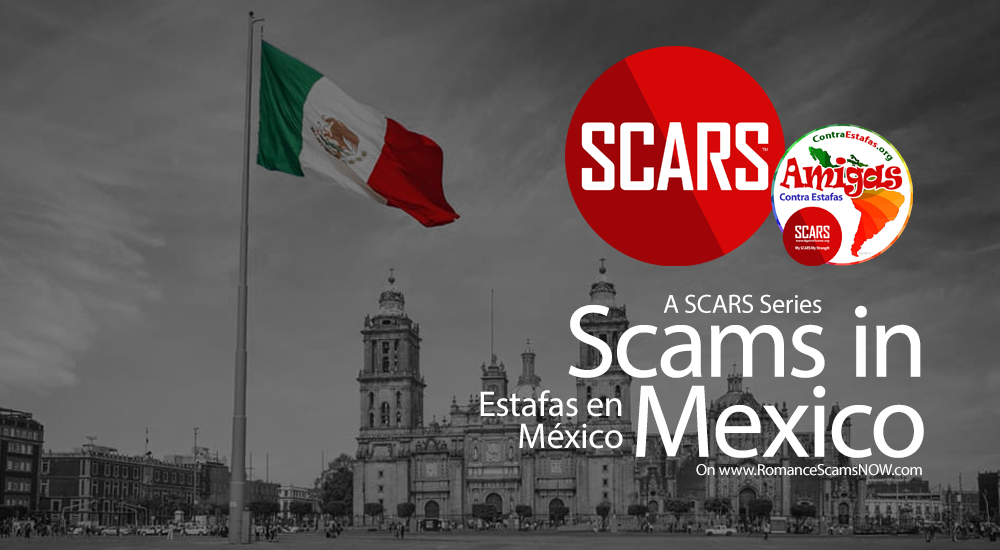

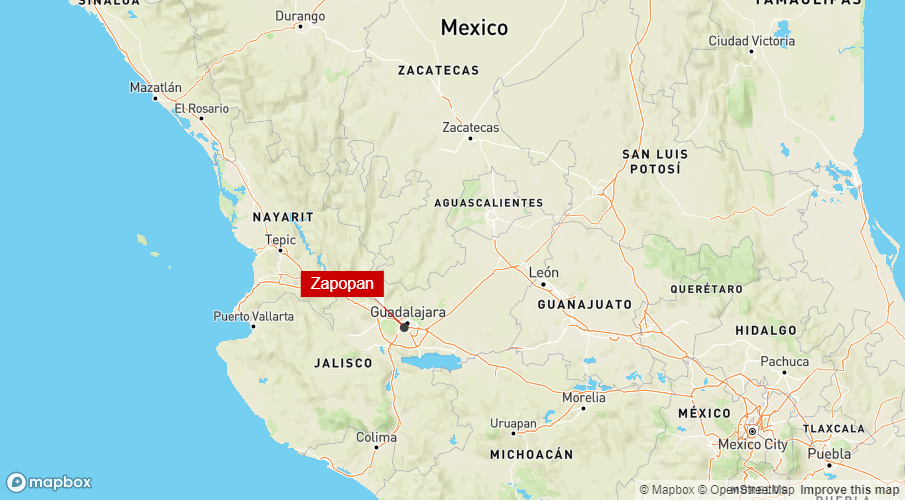

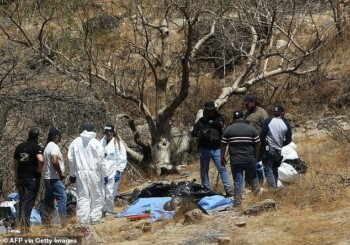
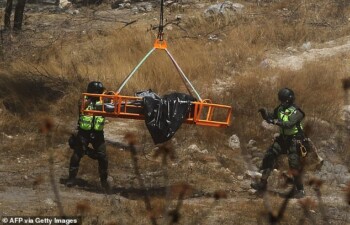





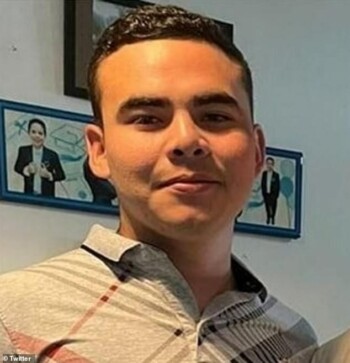

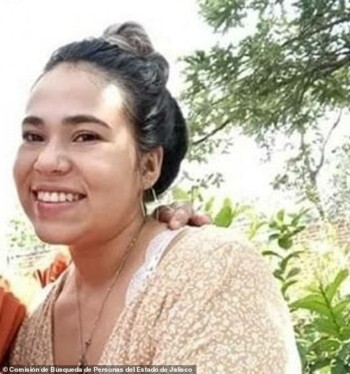










Thank you for your comment. You may receive an email to follow up. We never share your data with marketers.